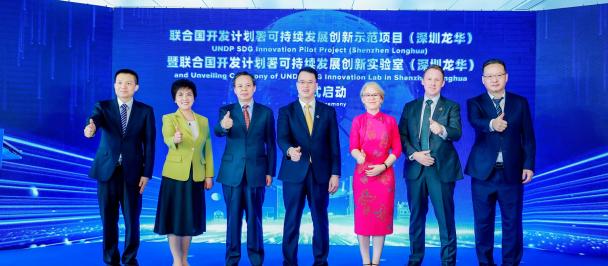The Importance of Sustainable Investments Abroad - Establishing a Network of Sustainable Investment Promotion (SIP) Facilities with Ethiopia as the Early Pilot
China’s engagement and financing provide an opportunity to close development gaps in partner countries and advance the Sustainable Development Goals (SDGs) on a global scale when implementation is systematically aligned with the principles and practices of economic, social and environmental sustainability.
The pilot at the country level aims to provide a scalable blueprint on how investments can be more sustainable responding to partner countries national development and economic priorities. The pilot SIP facility is designed on a two-phase approach. In the short term, it will develop a pilot facility in Ethiopia to generate i) concrete, relevant and effective modalities for sustainable investments; and ii) concrete lessons and recommendations on how positive development impact can be achieved- what approaches, policies, mechanisms work within an investment climate at the national level (and which ones do not). In the intermediate and long term, the approach can be scaled up as part of a network of sustainable investment facilities in other developing countries.
Objectives:
1. To strengthen institutional frameworks and building capacity in a selected pilot country (Ethiopia) towards the leveraging of sustainable investments, in order to improve the overall investment climate to attract and sustain foreign investments that respond to the country’s national development priorities and local needs. Specifically, the SIP facility will:
· Promote investments in a way that creates sustainable patterns.
· Provide investment offer to match investment demand.
· Strengthen partner countries’ capacities to better engage with foreign investment opportunities.
· Forge mutually-beneficial and win-win cooperation for Chinese, international and local actors.
· Promote positive early-harvest results and enhanced communication.
2. The short-term goals are to provide a framework of cooperation to leverage sustainable investment opportunities, show early and positive results, bridge communication gaps and ensure foreign investments complement existing programs with local stakeholders fully engaged.
3. The long term and intermediate goals are to improve the overall investment cooperation and conditions towards a sustainable, forward-looking path, and to tie investment promotion approach with well-structured, local institutions that have embodied local needs and development priorities of partner countries.
Expected results (EA):
EA1 Enhanced knowledge, information exchange and communication on sustainable investments, fostered knowledge and experience sharing on sustainable investment among multiple stakeholders in the selected pilot country and established a learning and capacity building network towards presenting investment policy as well as governance solutions to identified hindrance /bottlenecks of FDI.
EA2 Improved business environment and strengthened capacities of policymakers in the selected pilot country to identify regulatory and institutional gaps in adsorbing, sustaining and upgrading foreign investments in linage with national development priorities and local needs.
EA3 Enhanced sustainability scale and level of the selected investment as the pilot project, with the successful practices and development impacts thoroughly demonstrated and to be further scaled up/replicated later within and out of the selected pilot country.
Years |
Budget |
2019 |
660,112.96 USD |
2020 |
427,815.96 USD |

 Locations
Locations




